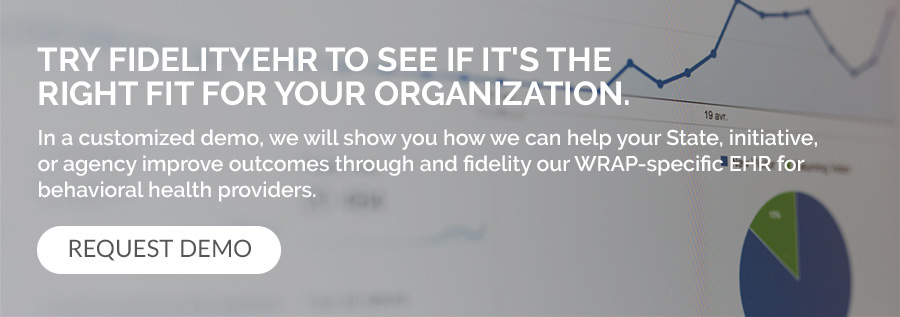Care managers ultimately want to do one thing: help children and youth with complicated mental and behavioral health challenges lead normal lives. But who helps care and case managers? Thankfully, there are lots of tools that care managers can use to make their jobs easier and more efficient every day. One of the best tools is a flexible electronic health record.
How can an electronic health record (EHR) software improve child and youth mental and behavioral health outcomes?
The right software is invaluable to both care wraparound care providers and Systems of Care. It ensures greater fidelity to the fundamental principles of effective integrated care and Wraparound, streamlines billing, facilitates a platform for open communication between team members, and most importantly, gives care providers the data they need to make evidence-based and informed decisions.
Instead of changing internal processes to cater to restrictive electronic health record software, the right EHR should be flexible, user-friendly and easy to customize.
Support fidelity with evidence-based EHR software for meaningful use
Some EHR software is more evidence-based than others. At FidelityEHR, we are committed to rigorously conducting ongoing field research to make sure that the electronic health record platform is performing optimally. In fact, it was designed based on feedback from over 100 behavioral health organizations. We listened to their needs, and built a flexible software with a multitude of features that support varying levels and models of care.
By supporting each of the 10 wraparound principles, FidelityEHR is equipped with unique features needed to effectively deliver the right level and plan of care to each child or youth.
Conveniently manage day-to-day tasks
Care managers can develop, customize and manage plans of care, crisis plans, progress notes and incident reports. Plans of care are embedded in the software, and staff are provided with custom workflows to help them manage smaller, daily tasks, while gaining visibility to the big picture and progress over a long period of time.
Easily communicate with team members
All information regarding the team members, youth and their family, is securely stored in the system for quick retrieval, but FidelityEHR takes it a step further. Instead of having to type out individual emails or pick up the phone, the software provides embedded email templates, in-platform messaging for quick communication, as well as automated meeting and task reminders. Accessibility permissions are set by the care manager, which means that team members only see what is most important to their role in supporting the youth on their personal FidelityEHR dashboard.
Conduct assessments and track progress (all in the same place)
Care managers no longer need to manage and upload data every time an assessment is completed. Instead, the software also serves as a platform for data collection. Insights from these assessment tools help to identify risks and needs, support decision making, and help care managers develop and improve individualized Plans of Care and treatment plans. Care managers can either build their own assessment in the Assessment Builder, or use the following widely-used and licensed assessment tools:
The Family Advocacy and Support Tool (FAST) (PRAED Certified)
Adult Strengths and Needs Assessment (ANSA) (PRAED Certified)
Transformational Collaborative Outcomes Management (PRAED Certified)
Learn More About Assessments
Based on a wide range of behavioral analyses, assessments, incident reports and team feedback, care managers have a lot of separate data points to draw insights from. But some electronic health records make it challenging for care managers to quickly identify their plan of care's strengths and weaknesses.
FidelityEHR embedded dashboards offer rich, flexible reporting that promotes data-based decision-making. Care managers can quickly evaluate ongoing barriers and successes. Fidelity provides the right information to care managers to help them make the best decisions possible to drive positive outcomes for youth and their families.


